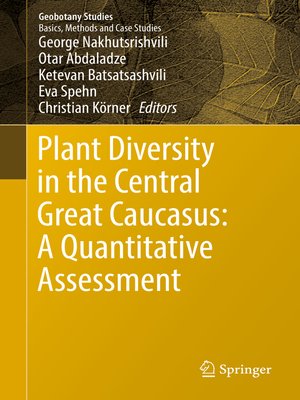Plant Diversity in the Central Great Caucasus
ebook ∣ A Quantitative Assessment · Geobotany Studies
By George Nakhutsrishvili

Sign up to save your library
With an OverDrive account, you can save your favorite libraries for at-a-glance information about availability. Find out more about OverDrive accounts.
Find this title in Libby, the library reading app by OverDrive.



Search for a digital library with this title
Title found at these libraries:
| Library Name | Distance |
|---|---|
| Loading... |
This book presents the first assessment of the high-elevation flora of the Central Caucasus with a community ecology emphasis. Following a geostatistical-climatological description of the region (in comparison to the European Alps), it describes the montane, alpine and nival plant assemblages on the basis of an ecological approach that combines moisture, soils and local habitat peculiarities.
Highlights include the famous giant herb communities in treeless parts of the upper montane belt, the various facets of alpine turf, and the unique assemblages and settings in the nival region. Further chapters address potential niche conservation between the Caucasus and the Alps, as well as a compilation of plant species habitat preferences (indicator values) that applies to a concept developed for the Alps.
Richly illustrated and featuring extensive quantitative data on species abundance, the book offers a unique guide to the plant species diversity of this prominent mountain range, and a valuable resource for comparative ecology and biodiversity assessments of warm temperate mountain systems.
Highlights include the famous giant herb communities in treeless parts of the upper montane belt, the various facets of alpine turf, and the unique assemblages and settings in the nival region. Further chapters address potential niche conservation between the Caucasus and the Alps, as well as a compilation of plant species habitat preferences (indicator values) that applies to a concept developed for the Alps.
Richly illustrated and featuring extensive quantitative data on species abundance, the book offers a unique guide to the plant species diversity of this prominent mountain range, and a valuable resource for comparative ecology and biodiversity assessments of warm temperate mountain systems.







